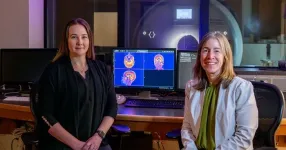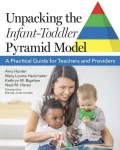(Press-News.org) ‘Astonishing’ findings in mice suggest microbial product could restore skin pigmentation
Offers hope for a disease that affects all skin tones, but is more visible and severe in darker skin
Vitiligo affects 0.5% to 2% of the global population
Patients available for interviews upon request
CHICAGO --- A natural compound derived from gut-friendly bacteria significantly slows the progression of vitiligo and may restore pigmentation, reports a new Northwestern University pre-clinical study in mice.
The findings could offer hope to millions affected by the autoimmune disease, which causes visible patches of skin discoloration and carries profound emotional and physical consequences.
“The results in our model were astonishing,” said senior study author I. Caroline Le Poole, a professor of dermatology and microbiology-immunology at Northwestern University Feinberg School of Medicine.
“We found that administering a microbial compound weekly to vitiligo-prone mice significantly suppressed disease progression. It made a spectacular difference in an aggressive model of the disease.”
The study was recently published in the Journal of Investigative Dermatology.
How the study was conducted
Le Poole and her colleagues administered a microbial product weekly to vitiligo-prone mice over an 18-week period. By the end, pigment loss on the mice’s backs was reduced by 74%.
The product reduced killer T cells that attack the skin’s pigment and increased protective regulatory T cells, which are typically scarce in vitiligo patients.
“This simple microbial compound could work as a standalone therapy, or in synergy with existing treatments,” Le Poole said.
Existing therapy has limitations
In 2022, the FDA approved the first re-pigmentation therapy for vitiligo: Opzelura (ruxolitinib) cream. Clinical trials found that only 30% of patients using the cream regained 75% or more skin re-pigmentation on the face.
“Our findings about the effectiveness of microbial therapy could give hope to patients who are not well-served by existing treatments,” Le Poole said.
Vitiligo is more severe in patients with darker skin
Vitiligo affects 0.5% to 2% of the global population and is linked to other health challenges, including higher risks of cardiovascular disease, psychological distress and endocrine disorders.
Discoloration often appears on the face, scalp, hands and arms, as well as around body openings like the mouth and genitals. Many individuals with vitiligo also have at least one other autoimmune condition.
Le Poole, who has spent more than 30 years studying vitiligo, said the disease has been found to be more severe in people with darker skin tones. The visibility of the discoloration in people with darker skin can also amplify stigma and emotional distress.
“Patients often feel powerless as they watch their disease progress, unsure how they will look next month,” Le Poole said. “For many, stabilizing the disease would be life changing.”
While the disease can affect self-esteem — particularly for adolescents navigating social pressures — some people embrace it.
“We’ve seen beautiful models with vitiligo challenging societal norms, and that’s wonderful,” Le Poole added. “But for those who want treatment, it’s important to provide real options that can halt disease progression.”
Next steps
The next challenge is adapting the microbial product for human use. “Weekly injections could work, but we need to explore simpler options, like a food additive or ointment,” said Le Poole. “We also need to understand how long the effects last and the best timing for treatment.”
Le Poole added that the same microbial compound she and her colleagues injected in mice could potentially treat other autoimmune conditions, particularly those involving killer T cells in the skin.
“Our next step is collaborating with scientists from several institutions to refine the compound, understand its mechanisms and determine whether it works alongside existing treatments for auto-immune disease.”
Le Poole’s lab is located in the Robert H. Lurie Comprehensive Cancer Center at Northwestern University.
END
Microbial therapy offers new hope for vitiligo patients
Study reveals potential breakthrough in halting disease progression
2025-01-28
ELSE PRESS RELEASES FROM THIS DATE:
Strategic corporate social responsibility can create social, economic value
2025-01-28
UNIVERSITY PARK, Pa. — Strategic corporate social responsibility (CSR) efforts that are directly related to a hospitality company’s core business operations and competencies can help companies create both social and business value, according to researchers in the Penn State School of Hospitality Management.
Led by Penn State Professor of Hospitality Management Seoki Lee, the research team developed a strategic framework to help hospitality companies optimize their CSR activities — like environmental and social initiatives — to obtain greater social and business value. The researchers published their ...
Researchers identify genetic ‘fingerprint’ to predict drug resistance in bacteria
2025-01-28
Antibiotic resistance is a global public health crisis responsible for more than a million deaths annually. By 2050, the World Health Organization estimates it could surpass cancer and heart disease as the leading cause of death as more bacteria develop defenses to the drugs designed to combat them.
Now Tulane University researchers have identified a unique genetic signature in bacteria that can predict their likelihood of developing antibiotic resistance, according to a new study published in Nature Communications. The findings could help researchers more quickly identify precision-based treatments that are more effective ...
Explaining persistent hydrogen in Mars’ atmosphere
2025-01-28
The fact that the cold, dry Mars of today had flowing rivers and lakes several billion years ago has puzzled scientists for decades. Now, Harvard researchers think they have a good explanation for a warmer, wetter ancient Mars.
Building on prior theories describing the Mars of yore as a hot again, cold again place, a team led by researchers at the Harvard John A. Paulson School of Engineering and Applied Sciences (SEAS) have determined the chemical mechanisms by which ancient Mars was able to sustain enough warmth in its early days ...
Journals publish Montana State ecologist’s studies on the effects of prey depletion on populations of large African carnivores
2025-01-28
By Diana Setterberg, MSU News Service
BOZEMAN – Two recently published studies by a Montana State University ecologist reveal new findings about the relationship between population dynamics of two species of large African carnivores and the availability of their prey.
“The studies are related in a lot of ways,” said Scott Creel, lead author of a paper about the effects of prey depletion on endangered African wild dogs that was published this week in the journal Proceedings of the National Academy of Sciences, and co-lead author of another paper about the effects of poaching controls on African lion demographics that was featured ...
Journal explores dementia-related trends in high- and middle-income countries
2025-01-28
Data from nations around the world can be used to develop strategies for dementia prevention, treatment, and care, according to “Multidisciplinary Perspectives on Dementia and Related Population Health Trends,” a new supplemental issue of The Journals of Gerontology, Series A: Biological Sciences and Medical Sciences.
Alzheimer’s disease and Alzheimer’s-disease-related dementias are a set of conditions involving impaired memory and other cognitive processes that interfere with daily functioning. Worldwide, significant increases in the number of older adults living with dementia are ...
Government Chief Scientific Adviser to launch University of Bath’s new Institute for Digital Security and Behavior
2025-01-28
Professor Dame Angela McLean, Government Chief Scientific Adviser, will lead the launch of the University of Bath’s new Institute for Digital Security and Behaviour (IDSB), on Wednesday 29 January, at Bath’s Guildhall, in a keynote speech on Securing the Future.
The Institute marks a new research collaboration, bringing together behavioural and social scientists to address the risks to society posed by digital technology.
Researchers will study the fundamental causes of vulnerability to harm and the factors that can make people, organisations and societies safer and more ...
Antarctic ice sheet faces “death by a thousand cuts”
2025-01-28
Arecent study conducted by University of Florida geologists and geographers has shed new light on the effects of climate change on Antarctic ice shelves. It found that while there has been broad ice shelf loss due to warming temperatures, the frequency and size of major iceberg calving events has not changed significantly.
This study was led by Assistant Professor of Geological Sciences Emma MacKie, Ph.D., and Assistant Professor of Geography Katy Serafin, Ph.D., along with a collaborator at the Colorado School of Mines.
“Our results suggest that the primary threat ...
Massachusetts General Hospital, Matthew Perry Foundation announce Fellowship in Addiction Medicine
2025-01-28
BOSTON, MA— The Matthew Perry Foundation and Massachusetts General Hospital (MGH), a founding member of the Mass General Brigham healthcare system, today announced the establishment of the Matthew Perry Foundation Fellowship in Addiction Medicine for the 2025/2026 academic year. The fellow will join a highly competitive Addiction Medicine fellowship program, which is one of only 105 available in the United States and trains physicians who have completed an accredited residency program to become specialists and leaders in Addiction Medicine. The fellowship focuses on developing clinical expertise, leadership skills, and training ...
Study shows promise for treating core symptom of frontotemporal dementia
2025-01-28
A new study led by Western researchers found frequent treatment with intranasal oxytocin – a hormone in the brain associated with empathy – offers promise for addressing a key symptom among patients with frontotemporal dementia (FTD): Apathy.
It’s a common issue among those with FTD which affects the frontal and temporal lobes of the brain, impacting language, behaviour and decision making. Patients with FTD lose interest in hobbies and passions that previously brought them joy and, most devastatingly, become apathetic ...
Book will guide teachers and child care providers in using the Pyramid Model
2025-01-28
LAWRENCE — A new book co-edited by a researcher at the University of Kansas is a guide for early childhood education professionals to implement the Pyramid Model framework for promoting social-emotional competence in infants and young children.
According to publisher Brookes, “Unpacking the Infant–Toddler Pyramid Model: A Practical Guide for Teachers and Providers” is the first book to provide “a comprehensive, step-by-step overview of the widely used Pyramid Model Practices for infants and toddlers from birth to 3. With this accessible training guide, teachers and providers will use research-based practices to meet the unique needs of ...
LAST 30 PRESS RELEASES:
Scientists discover why we know when to stop scratching an itch
A hidden reason inner ear cells die – and what it means for preventing hearing loss
Researchers discover how tuberculosis bacteria use a “stealth” mechanism to evade the immune system
New microscopy technique lets scientists see cells in unprecedented detail and color
Sometimes less is more: Scientists rethink how to pack medicine into tiny delivery capsules
Scientists build low-cost microscope to study living cells in zero gravity
The Biophysical Journal names Denis V. Titov the 2025 Paper of the Year-Early Career Investigator awardee
Scientists show how your body senses cold—and why menthol feels cool
Scientists deliver new molecule for getting DNA into cells
Study reveals insights about brain regions linked to OCD, informing potential treatments
Does ocean saltiness influence El Niño?
2026 Young Investigators: ONR celebrates new talent tackling warfighter challenges
Genetics help explain who gets the ‘telltale tingle’ from music, art and literature
Many Americans misunderstand medical aid in dying laws
Researchers publish landmark infectious disease study in ‘Science’
New NSF award supports innovative role-playing game approach to strengthening research security in academia
Kumar named to ACMA Emerging Leaders Program for 2026
AI language models could transform aquatic environmental risk assessment
New isotope tools reveal hidden pathways reshaping the global nitrogen cycle
Study reveals how antibiotic structure controls removal from water using biochar
Why chronic pain lasts longer in women: Immune cells offer clues
Toxic exposure creates epigenetic disease risk over 20 generations
More time spent on social media linked to steroid use intentions among boys and men
New study suggests a “kick it while it’s down” approach to cancer treatment could improve cure rates
Milken Institute, Ann Theodore Foundation launch new grant to support clinical trial for potential sarcoidosis treatment
New strategies boost effectiveness of CAR-NK therapy against cancer
Study: Adolescent cannabis use linked to doubling risk of psychotic and bipolar disorders
Invisible harms: drug-related deaths spike after hurricanes and tropical storms
Adolescent cannabis use and risk of psychotic, bipolar, depressive, and anxiety disorders
Anxiety, depression, and care barriers in adults with intellectual and developmental disabilities
[Press-News.org] Microbial therapy offers new hope for vitiligo patientsStudy reveals potential breakthrough in halting disease progression


